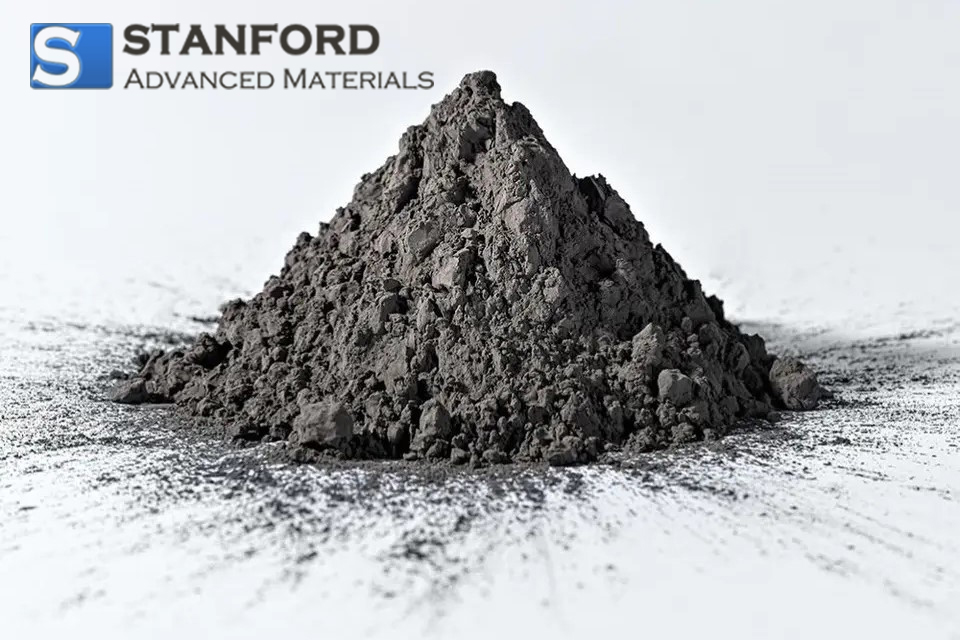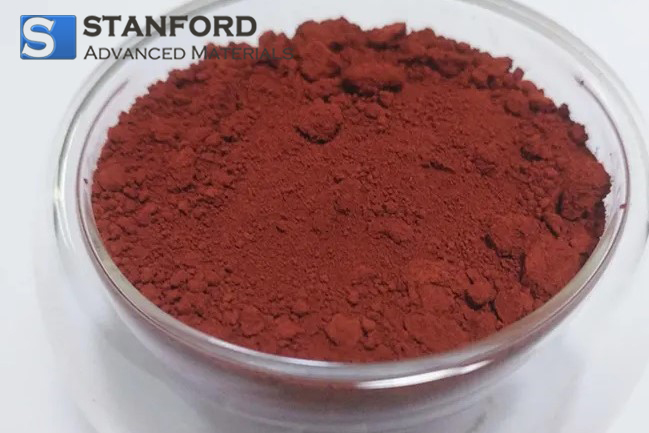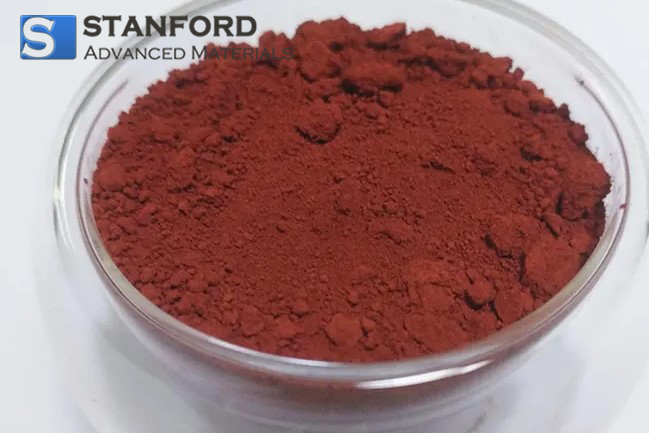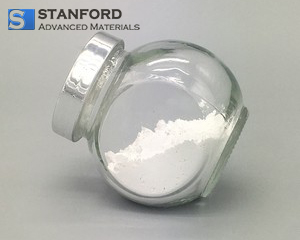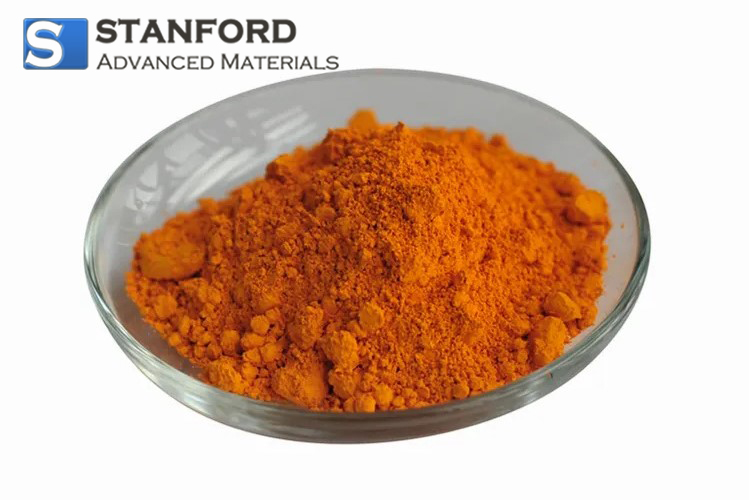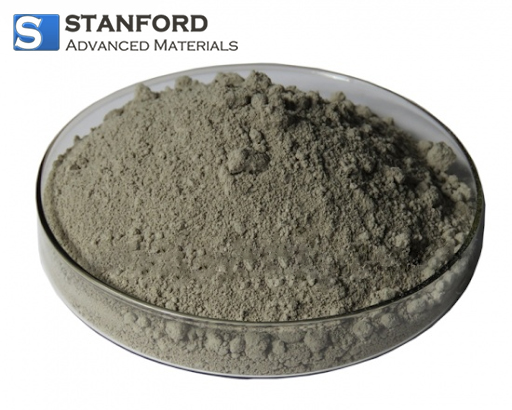SECTION 1. IDENTIFICATION
Product Name: Diamond Nanoparticles
CAS #: 7782-40-3
Relevant identified uses of the substance: Scientific research and development
Supplier details:
Stanford Advanced Materials
E-mail: sales@samaterials.com
Tel: (949) 407-8904
Address: 23661 Birtcher Dr., Lake Forest, CA 92630 U.S.A.
SECTION 2. HAZARDS IDENTIFICATION
Classification of the substance or mixture Not a hazardous substance or mixture. GHS Label
elements, including precautionary statements Not a hazardous substance or mixture. Hazards not
otherwise classified (HNOC) or not covered by GHS-none
SECTION 3. COMPOSITION/INFORMATION ON INGREDIENTS
Substances Chemical characterization: Product does not burn Formula: C Molecular Weight: 12.01
g/mol CAS-No.: 7782-40-3 EC-No.: 231-953-2 No ingredients are hazardous according to OSHA
criteria. No components need to be disclosed according to the applicable regulations.
SECTION 4. FIRST AID MEASURES
Description of first aid measures General advice Consult a physician. Show this safety data sheet to
the doctor in attendance. If inhaled If breathed in, move person into fresh air. If not breathing, give
artificial respiration. Consult a physician. In case of skin contact Wash off with soap and plenty of
water. Consult a physician. In case of eye contact Flush eyes with water as a precaution. If swallowed
Never give anything by mouth to an unconscious person. Rinse mouth with water. Consult a physician.
Most important symptoms and effects, both acute and delayed The most important known symptoms
and effects are described in the labelling (see section 2) and/or in section 11 Indication of anyimmediate medical attention and special treatment needed no data available
SECTION 5. FIREFIGHTING MEASURES
Extinguishing media Suitable extinguishing media Use extinguishing measures that are appropriate to
local circumstances and the surrounding environment. Special hazards arising from the substance or
mixture Carbon oxides Advice for firefighters Wear self contained breathing apparatus for fire fighting if
necessary. Further information The product itself does not burn.
SECTION 6. ACCIDENTAL RELEASE MEASURES
Personal precautions, protective equipment and emergency procedures Use personal protective
equipment. Avoid dust formation. Avoid breathing vapors, mist or gas. Avoid breathing dust. For
personal protection see section 8. Environmental precautions No special environmental precautions
required. Methods and materials for containment and cleaning up Pick up and arrange disposal
without creating dust. Sweep up and shovel. Keep in suitable, closed containers for disposal.
Reference to other sections For disposal see section 13.
SECTION 7. HANDLING AND STORAGE
Precautions for safe handling Further processing of solid materials may result in the formation of
combustible dusts. The potential for combustible dust formation should be taken into consideration
before additional processing occurs. Provide appropriate exhaust ventilation at places where dust is
formed. For precautions see section 2. Conditions for safe storage, including any incompatibilities
Keep container tightly closed in a dry and well-ventilated place. Keep in a dry place. Specific end
use(s) Apart from the uses mentioned in section 1 no other specific uses are stipulated
SECTION 8. EXPOSURE CONTROLS/PERSONAL PROTECTION
Control parameters Components with workplace control parameters Contains no substances with
occupational exposure limit values. Exposure controls Appropriate engineering controls Handle in
accordance with good industrial hygiene and safety practice. Wash hands before breaks and at the
end of workday. Personal protective equipment Eye/face protection Use equipment for eye protection
tested and approved under appropriate government standards such as NIOSH (US) or EN 166(EU).
Skin protection Handle with gloves. Gloves must be inspected prior to use. Use proper glove removal
technique (without touching glove's outer surface) to avoid skin contact with this product. Dispose of
contaminated gloves after use in accordance with applicable laws and good laboratory practices.
Wash and dry hands. Body Protection Choose body protection in relation to its type, to the
concentration and amount of dangerous substances, and to the specific work-place., The type of
protective equipment must be selected according to the concentration and amount of the dangerous
substance at the specific workplace. Respiratory protection Respiratory protection is not required.
Where protection from nuisance levels of dusts are desired, use type N95 (US) or type P1 (EN 143)
dust masks. Use respirators and components tested and approved under appropriate government
standards such as NIOSH (US) or CEN (EU). Control of environmental exposure No special
environmental precautions required.
SECTION 9. PHYSICAL AND CHEMICAL PROPERTIES
Information on basic physical and chemical properties Appearance Form: Powder Colour: light green
Odor odourless Odor Threshold no data available pH no data available Melting point/freezing point
3,727 °C (6,741 °F) Initial boiling point and boiling range no data available Flash point not applicableEvaporation rate no data available Flammability (solid, gas) no data available Upper/lower flammability
or explosive limits no data available Vapor pressure no data available Vapor density no data available
Relative density 3.5 g/mL at 25 °C (77 °F) Water solubility insoluble Partition coefficient: n-
octanol/water no data available Auto-ignition temperature > 420 °C (> 788 °F) at 1,013 hPa (760
mmHg) Decomposition temperature no data available Viscosity no data available Explosive properties
no data available Oxidizing properties no data available Other safety information no data available
SECTION 10. STABILITY AND REACTIVITY
Reactivity no data available Chemical stability Stable under recommended storage conditions.
Possibility of hazardous reactions no data available Conditions to avoid no data available Incompatible
materials Strong oxidizing agents Hazardous decomposition products Other decomposition products-
no data available In the event of fire: see section 5
SECTION 11. TOXICOLOGICAL INFORMATION
Information on toxicological effects Acute toxicity LD50 Oral-mouse-10,000 mg/kg Remarks:
Behavioral:Somnolence (general depressed activity). LD50 Oral-rat-female- > 2,000 mg/kg (OECD
Test Guideline 423) Inhalation: no data available no data available Skin corrosion/irritation no data
available Serious eye damage/eye irritation no data available Respiratory or skin sensitisation no data
available Germ cell mutagenicity in vitro assay S. typhimurium Result: negative Carcinogenicity IARC:
No component of this product present at levels greater than or equal to 0.1% is identified as probable,
possible or confirmed human carcinogen by IARC. ACGIH: No component of this product present at
levels greater than or equal to 0.1% is identified as a carcinogen or potential carcinogen by ACGIH.
NTP: No component of this product present at levels greater than or equal to 0.1% is identified as a
known or anticipated carcinogen by NTP. OSHA: No component of this product present at levels
greater than or equal to 0.1% is identified as a carcinogen or potential carcinogen by OSHA.
Reproductive toxicity no data available no data available Specific target organ toxicity -single exposure
no data available Specific target organ toxicity -repeated exposure no data available Aspiration hazard
no data available Additional Information RTECS: Not available To the best of our knowledge, the
chemical, physical, and toxicological properties have not been thoroughly investigated.
SECTION 12. ECOLOGICAL INFORMATION
Toxicity Toxicity to fish static testLC50-Oncorhynchus mykiss (rainbow trout)- > 100 mg/l-96 h(OECD
Test Guideline 203) Toxicity to daphnia and other aquatic invertebrates static test EC50-Daphnia
magna (Water flea)-> 100 mg/l-48 h(OECD Test Guideline 202) Persistence and degradability: no
data available Bioaccumulative potential: no data available Mobility in soil: no data available Results of
PBT and vPvB assessment: PBT/vPvB assessment not available as chemical safety assessment not
required/not conducted Other adverse effects no data available
SECTION 13. DISPOSAL CONSIDERATIONS
Waste treatment methods Product Offer surplus and non-recyclable solutions to a licensed disposal
company. Contaminated packaging Dispose of as unused product.
SECTION 14. EXPOSURE CONTROLS/PERSONAL PROTECTION
DOT (US) Not dangerous goods IMDG Not dangerous goods IATA Not dangerous goods
SECTION 15. REGULATORY INFORMATION
SARA 302 Components SARA 302: No chemicals in this material are subject to the reporting
requirements of SARA Title III, Section 302. SARA 313 Components SARA 313: This material does
not contain any chemical components with known CAS numbers that exceed the threshold (De
Minimis) reporting levels established by SARA Title III, Section 313. SARA 311/312 Hazards No SARA
Hazards Massachusetts Right To Know Components No components are subject to the
Massachusetts Right to Know Act. Pennsylvania Right To Know Components Diamond CAS-No.
7782-40-3 New Jersey Right To Know Components Diamond CAS-No. 7782-40-3 California Prop. 65
Components This product does not contain any chemicals known to State of California to cause
cancer, birth defects, or any other reproductive harm.
SECTION 16. OTHER INFORMATION
Safety Data Sheet according to Regulation (EC) No. 1907/2006 (REACH). The above information is
believed to be correct but does not purport to be all inclusive and shall be used only as a guide. The
information in this document is based on the present state of our knowledge and is applicable to the
product with regard to appropriate safety precautions. It does not represent any guarantee of the
properties of the product.
